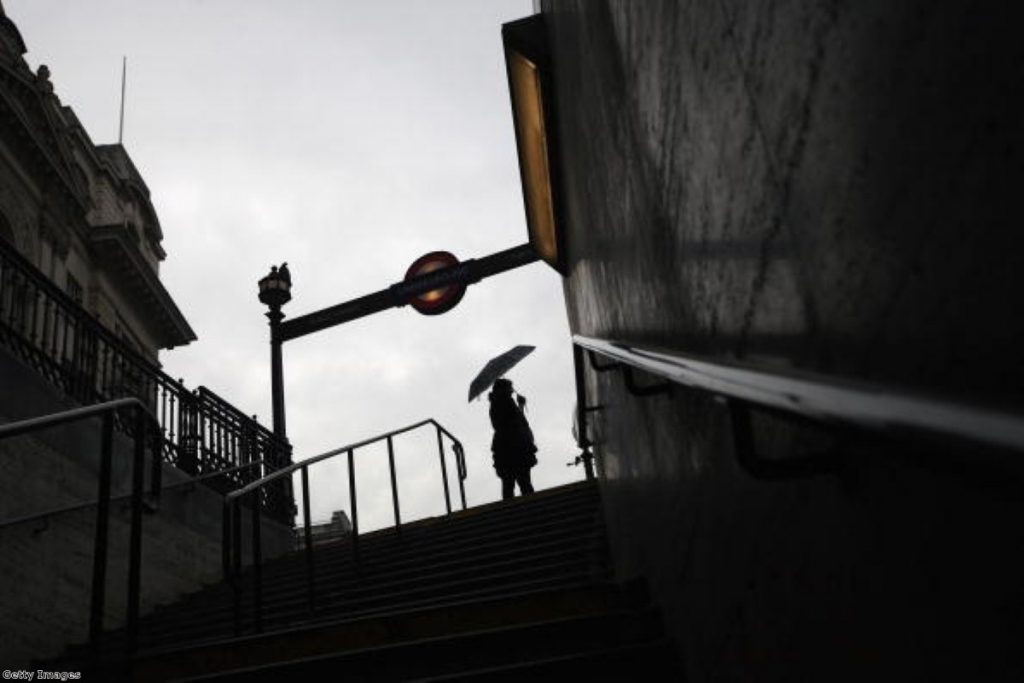Bob Crow was a testament to what trade unionists can achieve
Many people – particularly those who commuted in London – disliked Bob Crow.
He was an inconvenience. The strikes which beset London Underground were usually accompanied by his gruff, snarling face making demands via a TV news camera on the picket line.
He was like a figure from another time, a cut-out of 1970's trade unionism still alive and kicking in the 21st Century. He was a part of a political consensus which was supposed to be hopelessly wrapped up in the past.
But what Crow was really doing was extraordinarily simple. He was doing his job.


He was representing his members. He was standing up for the workers who comprised his union.
He fought off attempts to apply the same low-pay, hire-and-fire culture to London Underground as was being imposed elsewhere in the economy.
"It wasn't our members who created the downturn and we will not be bullied into accepting that they should be forced to pay for an economic crisis that was cooked up by the bankers and the politicians," he said in 2009.
Under Crow's leadership a 'platinum-plated' pay and benefits package which included basic pay, overtime, pension and free travel put Tube workers on a similar financial footing to NHS managers or deputy head teachers. The basic Tube driver's salary was £42,424, with perks for customer satisfaction and free travel on the Tube for the worker and their partner.
The press encouraged commuters to envy the salaries of Tube staff – to resent them for it.
A far more sensible reaction would be to look at what the RMT achieved and think: that's what workers can get when they organise.
Admittedly the Tube's near-monopoly on commuter requirements in London gives it much greater leverage than many other services. But Crow used that leverage to its greatest possible advantage with a hard-headed, aggressive approach to industrial relations.
The same papers which constructed ever-more imaginative arguments to defend bankers' bonuses would act as if they were outraged by Tube drivers' £42,424 wage. But this is not extraordinary wealth. It's the type of salary someone in the capital needs if they are to live a good, high quality life, with a partner and children. It's the type of salary someone in the capital deserves for a hard day's work, done diligently.
When did people become so compliant that they forgot to aspire to such wages and instead could be tempted into merely envying those who had secured it?
Trade unions are a bulwark against the creation of a low-wage, low-rights economy. That is the kind of economy we are living in now, a consumer economy which fails to remunerate workers with the spending power to sustain it.
Crow was subject to brutal tabloid press coverage, of the 'most hated man in Britain' variety. Every broadcast interview saw presenters try to out-Paxman themselves in their critique of his tactics, his acceptance of his own salary and whatever aspect of his personal life was to hand.
In his best recent outing Andrew Neil on the Sunday Politics asked him about his holiday to Brazil. "If I had your wages I'd be having two trips to Rio every year," he told the presenter. You could see the glimmer of grudging respect from Neil by the time the interview was over.
Crow was tough enough to seem uninterested in the savagery of the attacks on him, probably because he knew that their existence was proof he was doing his job.
Throughout it all Crow retained an extraordinary commitment to democracy: at a local council level and at a continental level, with his rare campaign work on a left-wing opposition to the EU. He was one of those few figures brave enough to raise the idea that democracy should not end when you go to work. You can see how terrifying that idea is to business leaders even today. Euan Sutherland tendered his resignation from the Co-Op last night due to his concern about its democratic structure.
Crow died young. During his career he was subject to daily abuse from the press. But he showed what trade unionism could achieve. If more trade union leaders were like him, their members might also enjoy a decent salary for a hard day's work. And trade unionism might still be a serious political force, making big and historic arguments about what a good society should look like.









